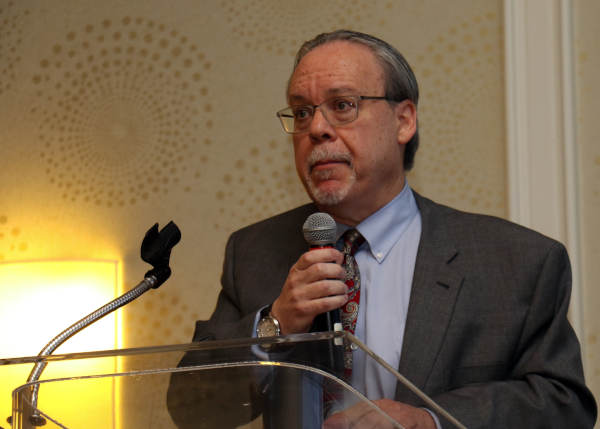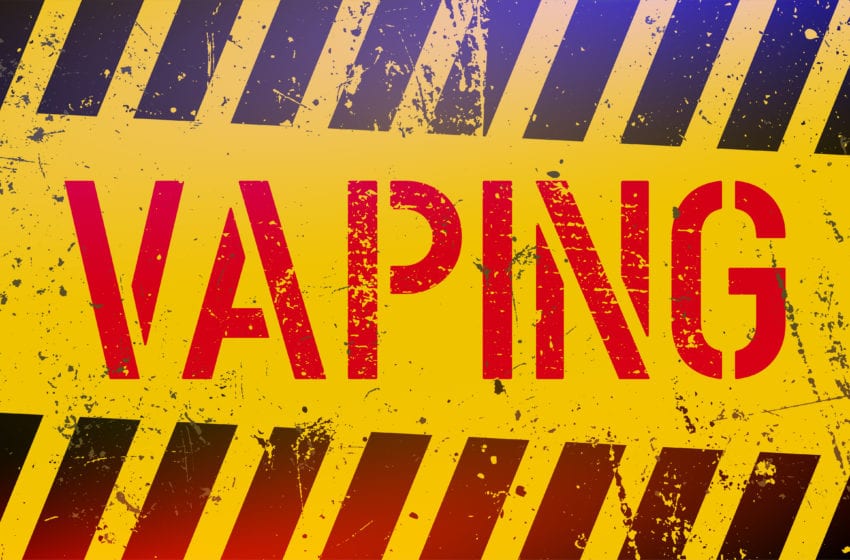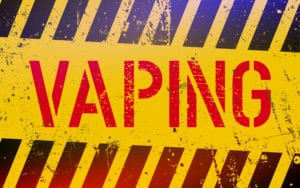During this year’s TMA conference, Mitch Zeller, director of the FDA’s CTP, gave his first speech since Scott Gottlieb resigned as FDA commissioner.
It’s business as usual. Mitch Zeller, director of the U.S. Food and Drug Administration’s (FDA) Center for Tobacco Products (CTP), said the agency continues to be “in a position of transition and change” after the abrupt resignation of Scott Gottlieb as the regulatory agency’s commissioner on April 5. “There is some uncertainty,” Zeller said. “But the public health mission of the center does not change.” It was Zeller’s first major public appearance since Gottlieb stepped down.
Speaking to a crowd of more than 130 participants during TMA’s 104th Annual Meeting and Conference, which was held in Falls Church, Virginia, USA, on April 12, Zeller discussed the FDA’s recent reports on a “possible” link between e-cigarettes and seizures. “We don’t yet have causality in these cases, but we have the reports …. We are seeing somewhat of an uptick in reporting … and a seizure is a serious incident,” Zeller said. “In fact, many of the reports we received are incomplete …. We wanted to get the word out to the public but also to those who would be in a position to do a better job of reporting in a more complete way to us.” Zeller then added that within 24 hours of making the announcement, “we have had a whole bunch of additional reports” filed with the agency.
There have been no studies or confirmed reports of any vapor products being the primary cause of a seizure.
Zeller also discussed the FDA’s newly proposed guidance of electronic nicotine-delivery systems (ENDS). The two main focal points surrounding the guidance are flavored e-liquids and pod systems. “The obvious concern, the 800-pound gorilla, is not just Juul, but all Juul-like products—the pod based products, that through some combination of the nicotine levels, the presence of nicotine salts, the flavors and the ease of which these products can be used so discreetly by kids,” Zeller stated. “We remarkably have some kids walking around inaccurately believing there is no nicotine in these products.”
The FDA has stated that if pod systems remain an issue in youth vaping, the products could be removed from the market. Zeller said the FDA has the authority to pull any vapor product from the market because there were no vapor products commercially marketed in the United States as of the predicate date, Feb. 15, 2007.
When asked how the FDA would define a pod-based system, Zeller replied, “It’s a fair question that I’m not going to answer …. The reality is there are no grandfathered ENDS products … there are no ENDS products that have received a marketing authorization through the substantial equivalency [SE] pathway,” said Zeller. “As a technical legal matter, none of these products are lawfully on the market.”
Regarding e-liquid flavors, Zeller said that the FDA looked at all the patterns of use, and, “after taking a tremendous amount of heat from the tobacco control community,” the FDA decided to draw the line at mint, menthol and tobacco flavors. “There’s [mint-, menthol-, tobacco- and non-flavored ENDS], and then there’s everything else, whether it’s grape, strawberry, bubblegum, cotton candy, unicorn puke …. There is a difference because of how popular mint and menthol ENDS products are with adults,” said Zeller. “But because the fruit and candy flavors are so much more popular with kids, not that they aren’t popular with adults, but that is the public health balancing act that we tried to do.”
Vapor products are on the market through an exercise in what the FDA calls “enforcement discretion,” according to Zeller. “That policy has been revisited and revised, which is our right under the law. So, for these other flavored ENDS products (excluding mint, menthol and tobacco) … those products can continue to be sold under our draft guidance,” he said. “But whether it’s in a brick-and-mortar establishment or online, there has to be some form of heightened age restriction that can prevent kids from getting access.”
The FDA has undertaken more than 1 million compliance checks since 2010, according to Zeller. He added that the 17 companies that were recently given warning letters concerning e-liquids that could be seen as being marketed toward youth had all “completely reformed.” Issues persist, however, Zeller said. “We had to send these warning letters [recently to a company] because of the resemblance between [their] e-liquid and a heavy duty, codeine-laced prescription drug, and the concern here was ingestion … because of the resemblance … you see the deliberate resemblance in the labeling,” he said.
During the question and answer session of his speech, Zeller was often forced to say, “I can’t comment on that right now.” When one attendee asked about the recent postponement of harmful and potentially harmful constituent testing, Zeller said, “I think I’m going to need to continue to disappoint you. We are working on it, and I can’t say anything more than that, other than we are now on record … saying that whatever the reporting requirements will be, it won’t be until after there is a final draft guidance …. Let’s just say [that] when it comes to clearance, we don’t control our own destiny … when it comes to getting things through the process.”
Bonnie Herzog, managing director of Wells Fargo Securities, wrote in an email that Zeller was understandably “careful to refrain from making any comments” regarding most of the policies the FDA has proposed in its recent rules. “However, to us, the important nuance was what director Zeller didn’t say. Namely, he refrained from repeating former commissioner Gottlieb’s strong threats to take more decisive action on youth e-cig access (e.g., removal of e-vapor pods from the market),” said Herzog. “This nuance suggests a distancing from Gottlieb’s more severe approach in anticipation, we think, of a potentially different tone from the new acting FDA commissioner …. In sum, the conference illuminated the complexity of the issues before the FDA …. It is clearly a delicate balancing act that remains elusive.”






